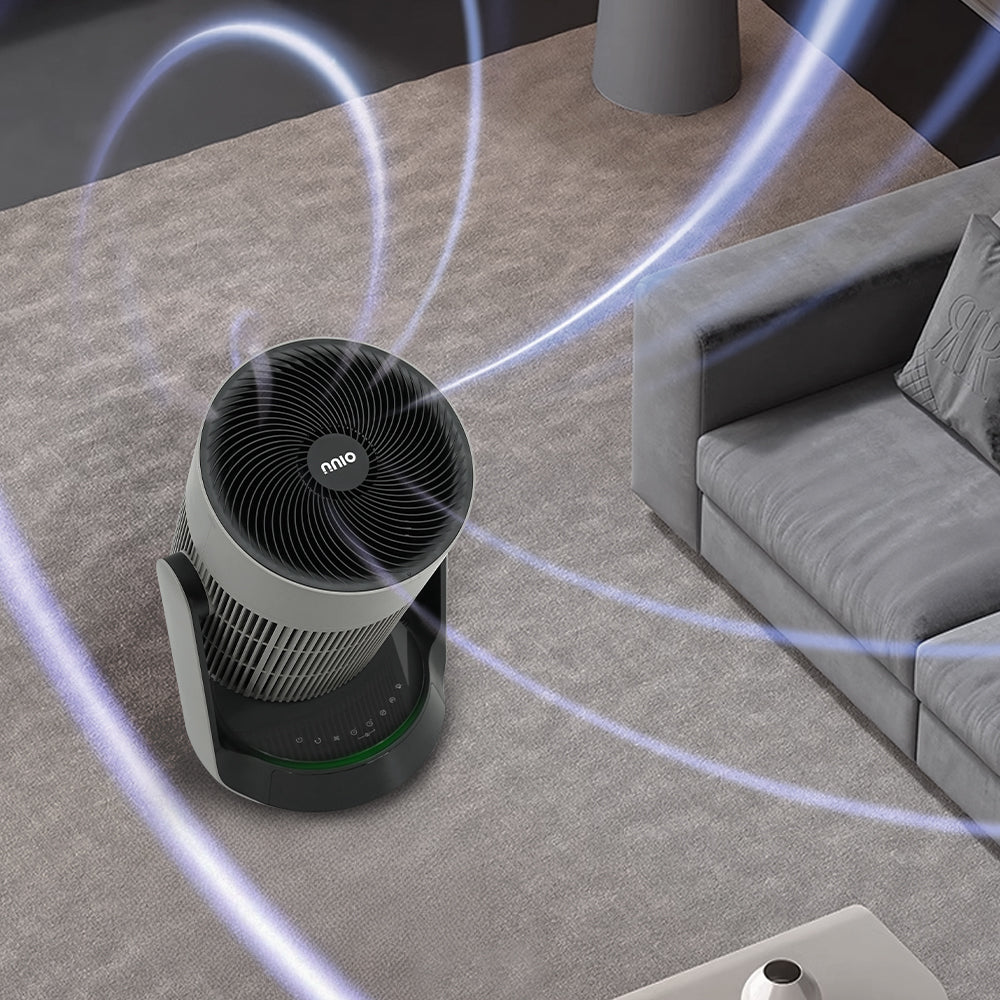
Air Coolers vs Fans vs Air Conditioners: What’s the Real Difference?
Singapore’s heat is punishing.
A recent piece by CNA summed it up well: students, parents, and teachers here are doing whatever they can to keep cool — portable fans in backpacks, sunblock, even rethinking school uniforms. Because let’s be honest: we can’t crank the AC everywhere, all the time.
So what’s worth your money? Is an air cooler just marketing hype? Is a fan enough? And is blasting the aircon really your only real option?
The Basics - How They Really Work
Fans: Honest Airflow

A fan does one thing: it moves air. It doesn’t chill the air itself. But by helping sweat evaporate faster, it feels cooler. It’s cheap, portable, and energy-friendly. But in still, humid air? Not enough on its own.
This is why air circulators are built to do better: instead of blasting air in one direction, they push air around the whole space, even that corner that always feels stuffy. It’s a simple tweak, but it works.
Air Coolers: Some Relief, If You Use Them Right

Air coolers (or evaporative coolers) pull warm air through a damp pad. Water evaporates, carrying some heat away. You get air that’s a few degrees cooler. This is gold in dry climates, but Singapore’s humidity means you need to be smart: they work best if you crack open a window or use them in semi-open spaces.
Used well, they’re an honest middle ground: more cooling than a fan, less power-hungry than AC. Air coolers are built easy to clean, easy to move, and realistically sized for local balconies, patios, or open kitchens.
Aircon: The Nuclear Option
Air conditioners don’t pretend. They remove heat (literally extract it) and push it outside. They also strip out humidity, which is half the battle in Singapore’s sticky nights. That’s why it feels so much colder. But the tradeoff is your utility bill. AC can account for 40% of a Singapore household’s electricity costs.
So yes, AC is king for fully enclosed rooms, but it shouldn’t be your default every hour of the day.
The Real Tradeoffs

|
Fans & Air Circulators |
Air Coolers |
Aircon |
|
|
Energy Use |
✔️ Lowest |
✔️ Moderate |
❌ Highest |
|
Portability |
✔️ Move it anywhere |
✔️ Semi-portable |
❌ Fixed |
|
Humidity Control |
❌ None |
❌ Adds moisture |
✔️ Removes it |
|
Best For |
Circulating air, pairing with AC, keeping spaces fresh |
Semi-open spaces, patios, events |
Bedrooms, closed spaces for max comfort |
No surprise there. But the point isn’t to say one’s better than the other, it’s to know what you’re buying into.
How to Make Each One Work Harder (And Save You Money)
✔️ Fans & Circulators
Open windows and doors. Push stale air out, bring fresher air in. Use an air circulator with good oscillation, not a single-direction blast.
✔️ Air Coolers
Always crack a window or door. Drop in ice packs for a quick boost. Keep the tank clean, stagnant water is a bacteria party you don’t want.
✔️ AC
Set your thermostat higher and use a fan to push cold air further. Clean your filters monthly. A dirty filter can add 15% to your energy bill.
What Everyone Forgets
Fans, coolers, and ACs aren’t enemies. They work better together, not alone. A fan makes your AC more efficient. An air circulator moves stale air away from corners. An air cooler does nothing if you run it like an AC in a sealed room.
The point is this: spend once, spend wisely. Buy what fits your space, your lifestyle, your bills. Then use it properly.
Bottom Line
It’s tempting to think you need the biggest, flashiest solution. But in this heat, you’ll save money, sweat less, and argue less when you understand how each tool works and when to use it.
Your AC is your ace. Your fan or circulator is your everyday helper. And a well-placed air cooler? It’s your bonus round when you use it right.
Want to see which fits your space?
Browse our range - fans, air circulators, and air coolers, all designed for how we live in Singapore.




